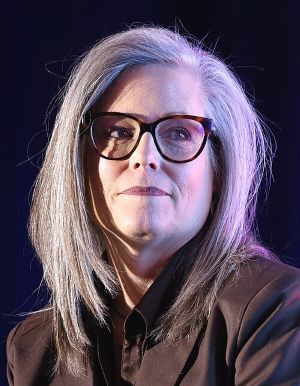In the high-stakes world of U.S.-China relations, few stories have raised eyebrows in 2025 like Governor Katie Hobbs' acceptance of a campaign donation from a Chinese Communist Party (CCP) member shortly after vetoing multiple anti-China bills. The saga, has fueled accusations of pay-to-play politics, national security lapses, and undue foreign influence in the swing state with Republicans branding Hobbs a "total disgrace" for allegedly prioritizing CCP cash over protecting critical infrastructure like military bases and biotech research hubs.
At least 22 states enacted foreign ownership restrictions between 2023 and 2024, driven by fears of espionage near military installations and data theft in sensitive sectors. Arizona, home to Luke Air Force Base, the Palo Verde Nuclear Generating Station, and Taiwan Semiconductor's massive chip factory, was ground zero. Republican lawmakers pushed bills to fortify the state against Beijing's reach.
In May, Hobbs vetoed a Bill which would have barred Arizona's healthcare and research institutions from using genetic sequencing tools from companies blacklisted by the Pentagon as "Chinese military companies." Critics argued this equipment posed risks of data exfiltration to the CCP, potentially compromising Arizonans' DNA profiles for military or surveillance purposes. Hobbs' veto letter cited insufficient safeguards and potential disruptions to medical innovation, but it drew immediate fire. State Armor Action, a conservative national security group, labeled it a gift to "America's adversaries."
Hobbs struck again on June 2nd, vetoing a Bill sponsored by Senate Majority Leader Janae Shamp aimed to prohibit the Chinese government or CCP-linked entities from acquiring a 30% or greater stake in Arizona land, especially near strategic assets. Proponents highlighted recent Chinese attempts to lease property near Luke AFB, evoking national security alarms. Hobbs defended the veto as targeting a "diluted" version of the original bipartisan proposal, arguing it was "ineffective at counter-espionage" and risked "arbitrary enforcement" without clear criteria. The backlash was swift and scorching. Shamp called the veto "utterly insane" and a direct threat to constituents. Michael Lucci, State Armor's founder, accused Hobbs of vetoing more anti-CCP bills than any other governor, five in two years, effectively hanging an "'Open for the CCP sign on Arizona’s front door."
Then came the donation. On July 15th, just six weeks after the land veto, Hobbs' campaign accepted $25,000 from Pin Ni, a prominent CCP member and board director at Wanxiang Group, a billion-dollar Chinese automotive giant with deep ties to Beijing's military-industrial complex. Wanxiang, known for acquiring U.S. firms like A123 Systems (a battery maker), operates in the electric vehicle sector Hobbs has championed through Arizona's green energy incentives. Republicans pounced, framing it as quid pro quo.
This most recent scandal simmers ahead of Hobbs' 2026 reelection bid. With Trump allies like 2026 gubernatorial hopeful Andy Biggs circling, it underscores America's swing-state battleground anxieties: Can economic ties with China coexist with security, or does every veto invite espionage? For now, the $25,000 check symbolizes a deeper rift, where foreign dollars cast long shadows over desert politics.
